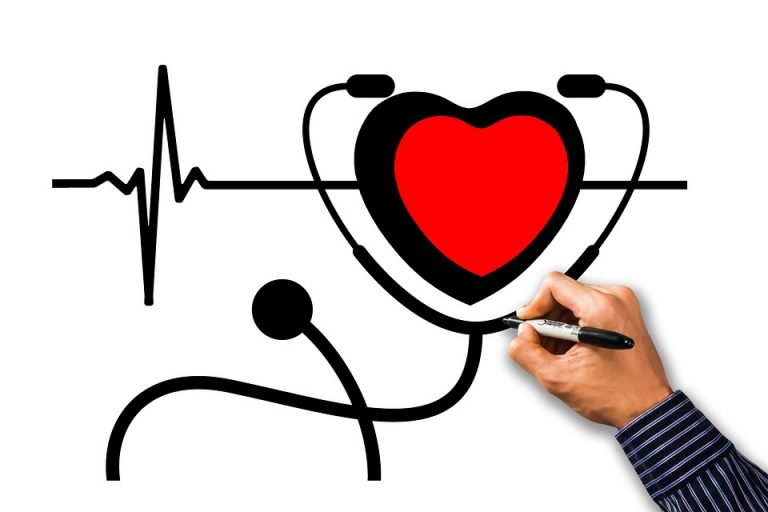Going low-carb opens the door to a treasure trove of benefits that can transform your life. If you’ve been curious about the low-carb lifestyle, you’re in for a treat. This approach isn’t just a diet; it’s a way to nourish your body, boost your energy, and even elevate your mood. Let’s dive into the ten surprising benefits that might just convince you to give low-carb a try today!
Contents
- What Does Low-Carb Mean?
- 1. Quick Weight Loss
- 2. Enhanced Mental Clarity
- 3. Stable Energy Levels
- 4. Reduced Hunger and Cravings
- 5. Improved Heart Health
- 6. Lower Blood Sugar Levels
- 7. Better Digestive Health
- 8. Increased Physical Performance
- 9. Less Inflammation
- 10. Longevity and Quality of Life
- Bottom Line
- FAQs
What Does Low-Carb Mean?
At its core, a low-carb diet means reducing your intake of carbohydrates, particularly refined carbs and sugars. Instead, you focus on consuming healthy fats and proteins. This matters because the way you fuel your body directly affects how you feel, how you function, and your overall health.
1. Quick Weight Loss
One of the most immediate benefits of going low-carb is rapid weight loss. When you cut back on carbs, your body starts burning stored fat for energy instead. This process, known as ketosis, can lead to quick results on the scale.
- Bonus: Many people report feeling less bloated and experiencing a flatter stomach within just a few days.
2. Enhanced Mental Clarity
You might not realize it, but your brain thrives on fat! When you reduce carbs, your body shifts to burning fat for fuel, which can lead to clearer thinking and improved focus.
- Studies show that ketogenic diets can enhance cognitive function and even support mental health.
3. Stable Energy Levels
Forget the mid-afternoon slump. A low-carb diet can help stabilize your blood sugar levels, allowing you to enjoy consistent energy throughout the day. No more crashes or cravings that lead to poor food choices!
- This means you’ll have the stamina to tackle that afternoon meeting or get through your workout without feeling drained.
4. Reduced Hunger and Cravings
When you fill your plate with healthy fats and proteins, you’ll likely find that your cravings for sugary snacks diminish. Low-carb diets are often more satisfying, which means you may eat less without feeling deprived.
- Your meals can feel more fulfilling, making it easier to stick with your new lifestyle.
5. Improved Heart Health
Going low-carb can positively impact your heart health. Research indicates that low-carb diets can lead to lower levels of triglycerides and increased levels of HDL (the “good” cholesterol).
- A heart-healthy diet is essential for overall wellness, and reducing carbs can be a pivotal step in that direction.
6. Lower Blood Sugar Levels
If you’re concerned about blood sugar spikes, a low-carb diet can be particularly beneficial. By cutting back on carbs, you help regulate your blood sugar levels, which is crucial for managing conditions like diabetes.
- The American Diabetes Association even notes that low-carb diets can be effective in controlling blood sugar levels.
7. Better Digestive Health
You might be surprised to learn that a low-carb diet can positively influence your gut health. By focusing on whole foods and avoiding processed carbs, you can improve your digestion and reduce bloating.
- Many people report less gas and discomfort when they switch to a low-carb lifestyle.
8. Increased Physical Performance
If you’re an athlete or love to stay active, going low-carb can enhance your performance. Many athletes find that they have increased endurance and strength when their bodies are fat-adapted, meaning they’re using fat for fuel instead of carbs.
- This can lead to better results in your workouts and a greater sense of accomplishment.
9. Less Inflammation
Chronic inflammation is linked to a host of health issues. A low-carb diet tends to include more anti-inflammatory foods, which can help reduce inflammation throughout your body.
- This means you might feel less achy and more agile, allowing you to enjoy your favorite activities without discomfort.
10. Longevity and Quality of Life
Adopting a low-carb lifestyle can contribute to a longer, healthier life. Research suggests that diets lower in carbs can reduce the risk of chronic diseases and promote better overall health.
- By making mindful choices about what you eat, you’re investing in your future and enhancing your quality of life.
Bottom Line
Going low-carb is more than just a trend; it can be a powerful tool for improving your health and well-being. From quicker weight loss to enhanced mental clarity, the benefits are numerous and impactful.
If you’re ready to take the plunge, start by eliminating processed sugars and refined carbs from your diet. Fill your plate with healthy fats, lean proteins, and plenty of fresh vegetables.
FAQs
1. Is going low-carb safe for everyone?
While many people can benefit from a low-carb diet, it’s essential to consult with a healthcare provider, especially if you have underlying health conditions.
2. Can I still eat fruits and vegetables on a low-carb diet?
Absolutely! Focus on low-carb vegetables like leafy greens, broccoli, and cauliflower. Berries are also a great option in moderation.
3. How long does it take to see results from a low-carb diet?
Many people notice changes within a week, especially in terms of weight loss and energy levels.
By embracing the low-carb lifestyle today, you’re opening the door to a healthier, more vibrant version of yourself. So why not start now? Your body—and your future self—will thank you!
Get Your FREE Natural Health Guide!
Subscribe now and receive our exclusive ebook packed with natural health tips, practical wellness advice, and easy lifestyle changes, delivered straight to your inbox.





